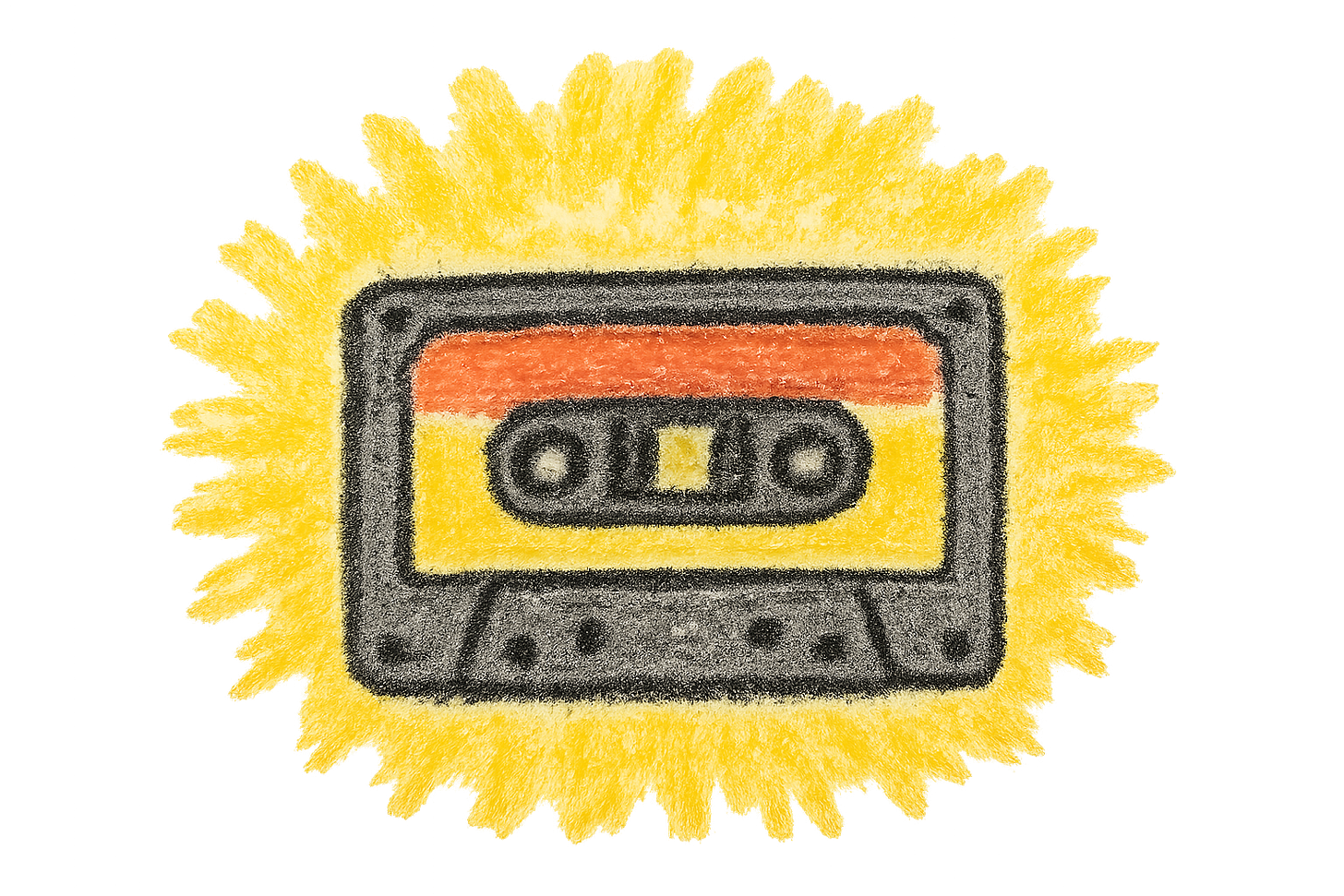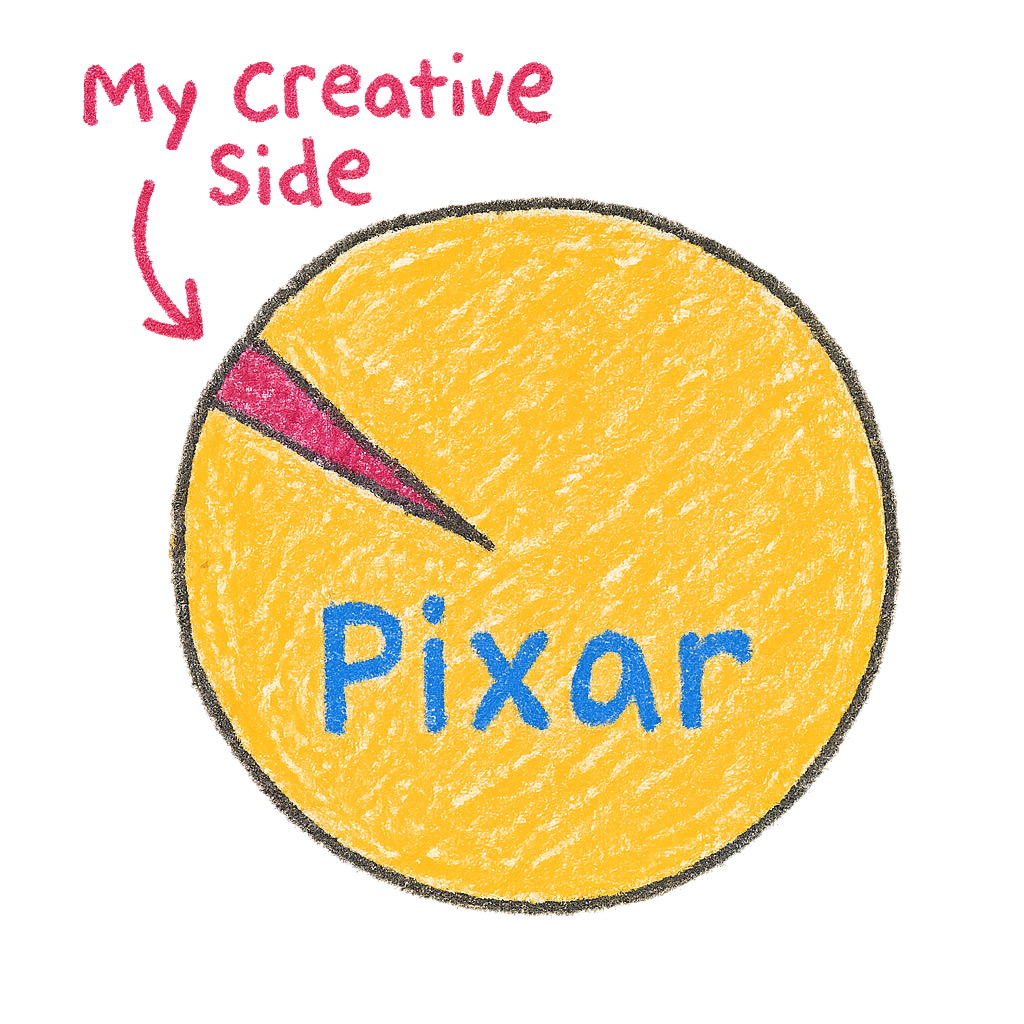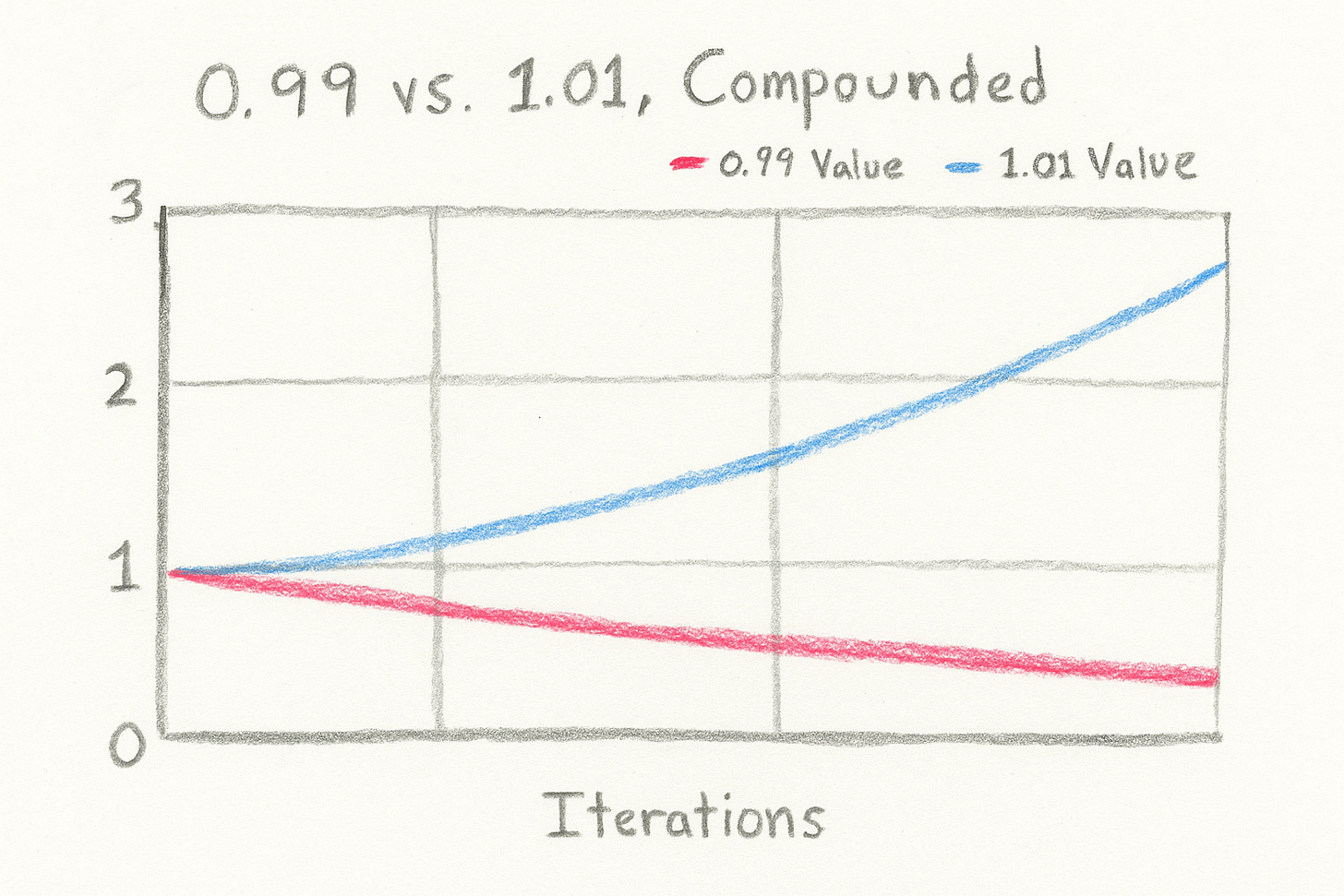One Year Later
Just a smidge over a year ago, in July 2024, I decided to leave the corporate world to figure out — well, something. I didn’t quite know what it was yet.
I had just spent the past few years wondering why I felt like a half-alive shadow of what I had once known to be myself.
It wasn’t for a lack of trying. I devoured self-help books (a late-blooming gene I’ve most certainly inherited from my erudite father) and gathered everything I had left of myself to show face on weekdays and weekends.
But the weekdays were not fulfilling. And the weekends were not restful.
In school, I might have grit my teeth and pushed through with the comforting promise of a summer reset around the corner. School is a series of finite games, where one plays to win the level and progress forward.
"What’s the point of all this?" is a strikingly different kind of game. This was the infinite game of life, where the entire point of playing is to continue the play.
And a mere three years out of school, I was rapidly losing steam.
I’d heard of this alluring and elusive concept of a life from an old Deepak Chopra cassette tape (thank you, dad), where your life is set up in such a way that actions taken generate more life energy than they expend. A magical state of flow that bubbles up to boundless energy and aliveness over the course of a lifetime.
For those three years of corporate life, any action I took consumed more energy (lost hours, frustration, boredom) than it created (fulfillment, learning). I knew in my gut that I was on a downward spiral that would ultimately lead to a death of some kind — physical, or in spirit.
I needed to get myself to baseline. But why not aim higher? I needed to get into the positive.
Unfolding
"If I look at things that have turned out well in my life (my marriage, some of my essays, my current career)—the 'design process' has been the same in each case. It has been what Christopher Alexander called an unfolding. Put simply: I paid attention to things I liked to do, and found ways to do more of that. I made it easy for interesting people to find me, and then I hung out with them. We did projects together. I kept iterating—paying attention to the context, removing things that frustrated me, and expanding things that made me feel alive. Eventually, I looked up and noticed that my life was nothing like I imagined it would be. But it fit me."
The word “unfolding” has been a constant mantra in my mind throughout this past year.
The concept is simple—consistently take iterative, intuition-led steps forward and your life gently builds around you, fitting your unique shape. There are no pre-defined destinations with unfolding. Just a rough feeling of aliveness that intuition slowly inches you towards.
The two core needs for an unfolding process to occur are:
1. Space to iterate
2. Intuition-led iteration
I resonated with the concept of unfolding so much that I’ve set up unfolding processes in nearly all of the key areas of my life. A few examples —
Finding Home: I decided to forgo signing a lease on an apartment in San Francisco (unlocking space to iterate) and opted instead for flitting around the Bay Area (intuition-led iteration) with my life bundled into a carry-on suitcase and backpack. I’ve stayed in 18 unique places in 2025 and have learned a monstrous amount about how and where I want to live.
Career: I decided to leave my corporate job (unlocking space to iterate) to work on a startup where we’ve been testing numerous ideas (intuition-led iteration) to understand both what my ideal working style and field of work are.
By nature, founding a startup is an unfolding process, likely due to the built-in freedom and iteration. In any well-defined corporate job there’s some implicit archetype to adhere to (the lone wolf engineer hunched behind a computer in a company hoodie; the extroverted, thought-leader VC who spams LinkedIn).
But with startups, you’re fully stewing in your own sauce at all times. There’s no archetype, just you. A company is really the founder's DNA embodied in a business.
Entrepreneurs are weird. It’s a beautiful weirdness of someone who has been rewarded for double, triple, quadrupling down on who they uniquely are.
"When I meet a person who is truly, profoundly themselves, I sometimes think of a letter Charles Darwin sent to Joseph Hooker in January 1862 after receiving a package of orchids.
'Good heavens,' Darwin wrote about the Angraecum sesquipedale, an orchid from Madagascar with a nectary as long as his forearm, 'what insect can suck it?'
Darwin conjectured that there must exist a pollinator moth with a tongue longer than any that had ever been observed. The moth and the orchid must have evolved in dialogue.
This is what I infer when I see someone who is comfortable in their unique strangeness, too. There probably exists someone who enabled that evolution of personality. A parent, a friend group, a spouse. It is rare for people to come into themselves if no one is excited and curious about their core, their potential. We need someone who gives us space to unfold."
— also Henrik Karlsson, related to me by Eliot
0.99 vs. 1.01
At this point, my co-founder, Eliot, makes up at least one entire lobe of my brain. Here’s yet another piece of his genius: 0.99 vs. 1.01.
An example: Pixar was close, close, close to perfect as a job, but a 1% sized sliver of the pie was missing: the ability to use my creativity. I was forever stuck at 99%.
Working at Pixar, over time, mapped to
99% * 99% * 99%... = 0.99 * 0.99 * 0.99...
Each 0.99 or 1.01 is a multiplier on your happiness in a given moment. No matter how close we get to 1 (0.99999999999...), that tiny gap will always lead to exponential decay towards your unhappiest self over time. Conversely, if a decision rides even minutely above one (1.00000...1), it will always exponentially grow over time towards your happiest self.
I find this theory particularly compelling because it abstracts so elegantly to life's various dimensions. Every moment of every element in your life (career, relationships, lifestyle) functions as a multiplier on your overall happiness.
It’s particularly poignant when thinking about relationships. For one person, a relationship might be a 1.01, while for their partner, it might be a 0.99. This misalignment creates an inherent tragedy where one person grows happier while the other decays into unhappiness.
The key insight isn't finding perfection, but rather ensuring you're making "greater than 1" choices. There might be people or careers or decisions with larger multipliers, but anything >1 will lead to a steady improvement in your life, bringing you closer to your truest, happiest self. There is no singular "correct" choice.
Capping Downsides vs. Chasing Upsides
Capping downsides is playing to not lose. Chasing upsides is playing to win.
As a student, I poured everything into capping downsides. I was, as I call it, "brute forcing life" with the goal of making as few mistakes as possible.
And it worked, to a point. It brought me to good places, as no one could hold any big failures against me.
However, this strategy has a hard ceiling, bounded by the time and energy I have allotted to me as a human being. In order to break past that ceiling, I needed to start dropping some balls to move the most important ones further forward. I had to be bad at some things so I could be great at others. It meant shifting from minimizing losses to maximizing upside on the bets that mattered most.
Most of the challenges in this past year of building a company were, counterintuitively, not at all about company-building logistics. They were about people.
So then, why work with others at all? If they slow you down, disagree, or complicate things?
It’s because the upside is immense: someone who challenges your thinking, sparks inspiration, and pushes forward when you're tired is well worth the disagreements and delays. As the saying goes, if you want to go fast, go alone. If you want to go far, go together.
This year of chasing upsides led me to:
Start posting online despite fears of cringe or cancellation
Build the exact type of creative tech company I’ve always dreamed about, despite brutal success odds
Work with cofounders who’ve brought me further than I could have ever gone alone
One Year Later
One year of finding my way through this unmapped forest with intuition, iteration, a steeply reduced tolerance for 0.99s, and chasing upsides has allowed me to unfold into what I have dubbed the “Shubiest Shubha to date."
Failure no longer feels like an absolute end. I’ve been on this path long enough to know that even if this ends in flames, I would still have taken the leap back in July 2024 to become the version of myself that exists today.
A year ago, I was so worried about getting cancelled on the internet, failing publicly, if I could convince people to work with me, if I’d ever get out of my parent’s garage, if I’d have to go tail-between-my-legs back to a corporate job, and if entrepreneurship was actually something I wanted or something I was convinced into wanting. I could hardly sleep at night because I had no idea what I was doing.
One year later, I am pretty darn comfortable with being on the internet, failing publicly would make for a good story and an even better comeback, I have cofounders, I’m out of my parent’s garage in a weird but comfortable way (I catsit for housing), and I’d wholeheartedly move back in with my parents and start from square zero as many times as needed. I sleep a bit better at night because I’ve learned that nobody actually knows what they’re doing — we’re all just figuring it out as we go.
The only world I want to continue existing in (as of now) is one where I can build something of my own. No other mode of living as an adult has made me feel so alive.






This is so inspiring, beautiful read!
I absolutely adore you and your words Shubha!!!!